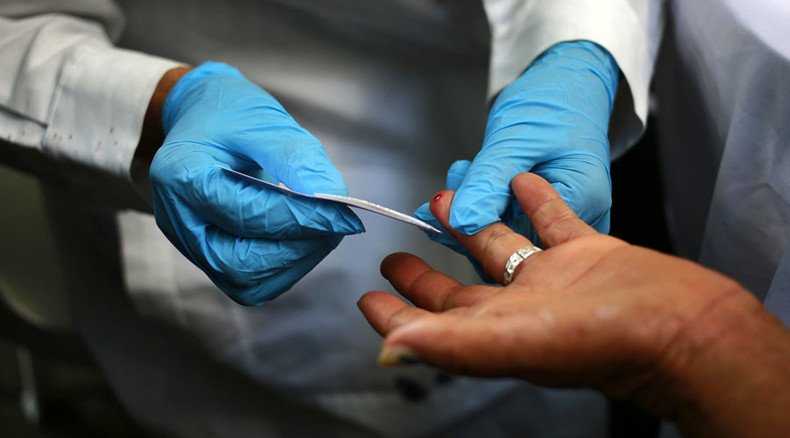Body clock: Blood test can detect 'biological age' & predict Alzheimer's risk, says study

There may actually be some truth to the phrase “age is just a number.” Scientists have developed a blood test to determine how old our bodies really are – and it could be key to predicting a person's risk of developing Alzheimer's and other conditions.
The test, developed by a team at King's College London, measures a person's “biological age,” which may be younger or older than their actual chronological age.
“We use birth year, or chronological age, to judge everything from insurance premiums to whether you get a medical procedure or not. Most people accept that all 60-year-olds are not the same, but there has been no reliable test for underlying biological age,” said study leader James Timmons, professor of precision medicine at King’s College London, as quoted by AAP.
Alzheimer’s breakthrough? First ever drug found that may slow disease http://t.co/xq4JwEQySxpic.twitter.com/8wojfcaBzU
— RT (@RT_com) July 23, 2015The test looks for an ‘aging signature’ in your body's cells by comparing the behavior and vitality of 150 genes.
Timmons and his team first analyzed the activity levels of a panel of key genes of healthy 65-year-old people by measuring the levels of Ribonucleic acid (RNA) in their blood. This information was used as a marker of biological aging.
The researchers then studied the RNA of healthy 70-year-old men and analyzed their health records over two decades. They found that high gene-activity scores were associated with better cognitive health and kidney function across a 12-year period – both of which predict the risk of early death.
“The men who had a really high score had almost no chance of being dead at the end of the 20 years,” said Timmons, as quoted by the Guardian.
The study, published in the journal Genome Biology on Monday, shows that the test can distinguish between healthy individuals and patients with Alzheimer's.
A significant difference was found in the genetic signatures of those with mild cognitive problems – such as early dementia – and healthy people of the same age.
This means the test could potentially be used to identify those in the early stages of the disease, but who have not yet developed symptoms.
Alzheimer's symptoms could appear 18yrs before diagnosis – study http://t.co/6cfnTAW7OEpic.twitter.com/Wub04cxWZu
— RT (@RT_com) June 29, 2015“Catching those at early risk [of Alzheimer's] is key to evaluating potential treatments,” Timmons said, adding that the test “most likely represents a way to spot 'at risk' people and guide them toward clinical trials for prevention.”
But the test also has a wide range of other possibilities, including screening organs donated for transplant operations. Knowing more about the age of organs beforehand could lower the risk of them failing once they have been transplanted, Timmons said.
The test could also open doors for organ donation from elderly people with a young biological age. That is, organs and tissues that would typically be ruled out on the grounds of old age could actually become usable.
“At the moment we have a cut-off age for donors of about 70 years old, but with this, we can see whether an organ has a good biological age, and make a decision on whether to implant it into a patient or not. We should be able to make better decisions, and probably use older donors,” Timmons said.












